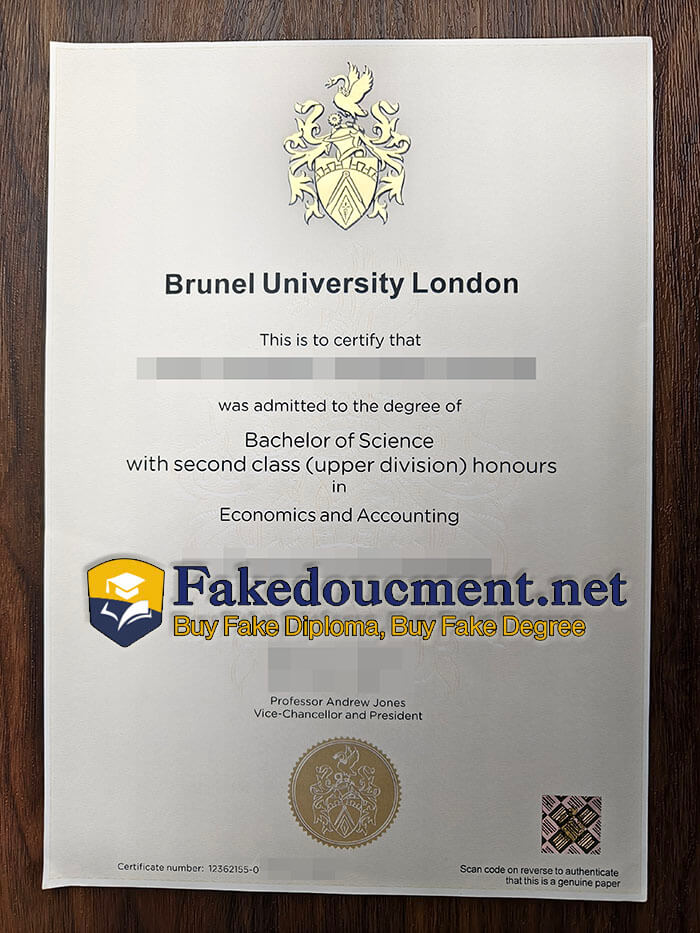
Where to order fake Brunel University London degree certificate online? Why people would like to buy a realistic Brunel University London diploma certificate online? The best way to buy a realistic Brunel University London degree certificate online? Brunel University London is a public research university located in Uxbridge, West London, United Kingdom. It was established in 1966 and named after the Victorian engineer Isambard Kingdom Brunel.
The university offers a wide range of undergraduate and postgraduate programs in various fields such as engineering, business, arts, social sciences, health sciences, and more. Brunel University London is known for its strong emphasis on practical and industry-relevant education, as well as its research excellence in areas such as aerospace engineering, environmental sciences, and health economics.
Brunel University London is one of a number of British universities which were established in the 1960s following the Robbins Report on higher education. It is sometimes described as a “plate glass university”.
The university’s origins lie in Acton Technical College, which was split into two in 1957: Acton Technical College continued to cater for technicians and craftsmen, and the new Brunel College of Technology (named after Isambard Kingdom Brunel, the British engineer) was dedicated to the education of chartered engineers.
The campus buildings were designed in the Brutalist style of architecture by Richard Sheppard, Robson & Partners, Architects.
In 1960 Brunel College of Technology was awarded the status of College of Advanced Technology, and it was decided that it should expand at another site in order to accommodate the extra buildings that would be needed.
Uxbridge was chosen to house the new buildings, and construction work hadn’t even begun before the Ministry of Education officially changed the college’s status: it was officially named Brunel College of Advanced Technology in 1962 – the tenth Advanced Technology College in the country, and the last to be awarded this title.
The Uxbridge (Vine Street) railway branch line was closed in 1964, and the college purchased the land adjacent to its site where the railway had run for £65,000 from the local council.
The university continued to use both campuses until 1971, when it left the Acton site. In 1980, the university merged with Shoreditch College of Education (Shoreditch Training College), located at Cooper’s Hill, Runnymede, which became Brunel’s second campus.
In 1995, the university expanded again, integrating the West London Institute of Higher Education, and adding campuses in Osterley and Twickenham, and increasing the number of courses that the university was able to offer.
Traditionally the university’s strengths were in engineering, science, and technology, but with the addition of the West London Institute, new departments such as arts, humanities, geography and earth science, health and sports science were added, and the size of the student body increased to over 12,000.
Brunel has been the subject of controversy as its approach to higher education has been both market-driven and politically conservative. The decision to award an honorary degree to Margaret Thatcher in 1996, following the University of Oxford’s refusal to do so, provoked an outcry by staff and students, and as a result the ceremony had to be held in the House of Lords instead of on campus.
In the late 1990s, the Departments of Physics, Chemistry, and Materials Engineering were all closed, and, in 2004, the then Vice-Chancellor Steven Schwartz, initiated the reorganisation of the university’s faculties and departments into schools, and closed the Department of Geography and Earth Sciences. The succeeding Vice-Chancellor, the sociologist Christopher Jenks, took office in 2006. He was followed by Julia Buckingham, previously at Imperial College London, who took up the position of Vice-Chancellor at Brunel in 2012.






